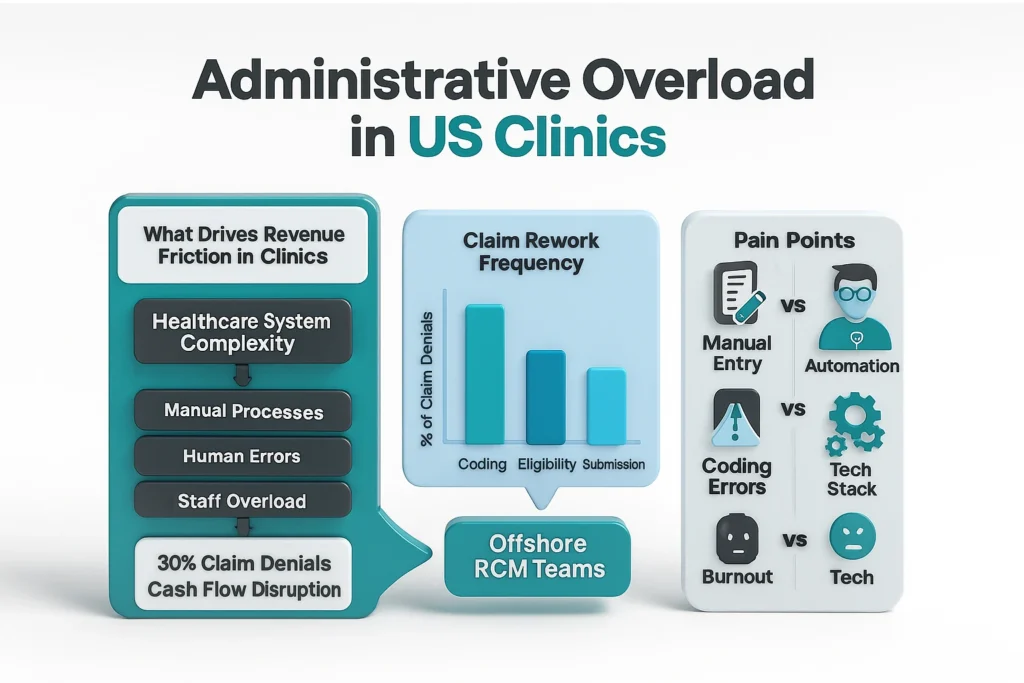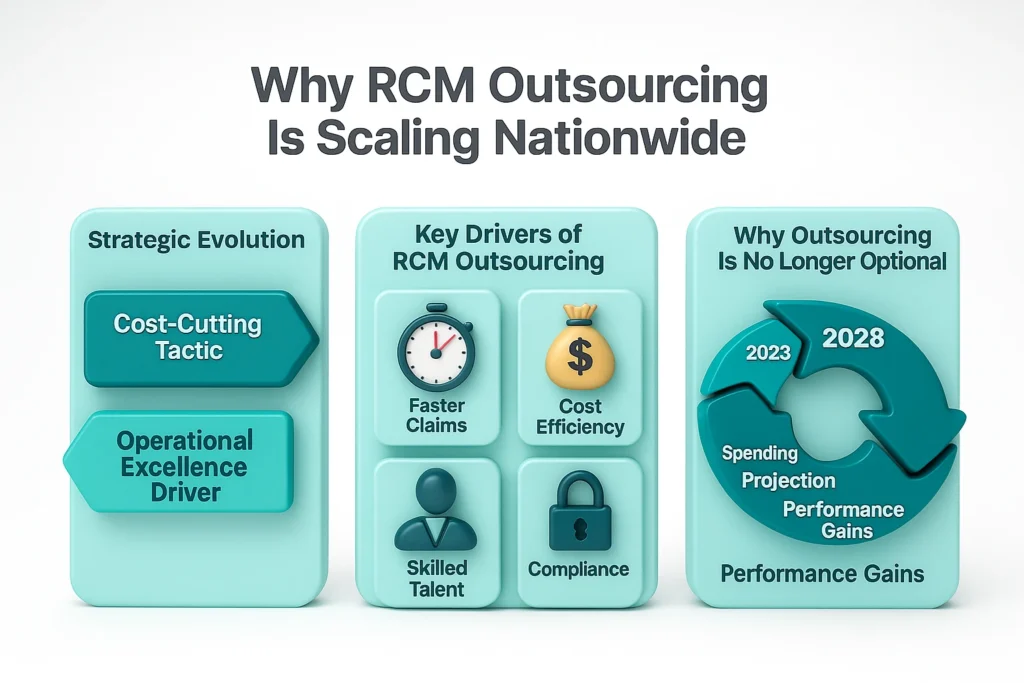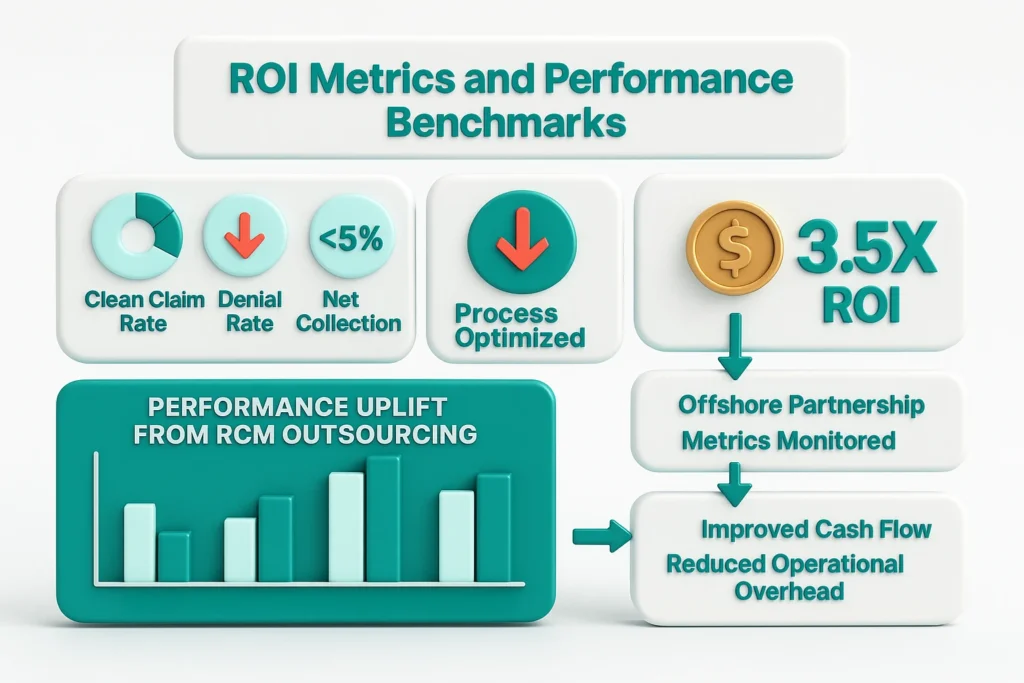Healthcare providers in the U.S. are experiencing unprecedented administrative pressures. Physicians and clinical staff spend nearly half of their working hours on non-clinical tasks such as billing, coding, and claims submission, reducing time available for patient care (American Medical Association, 2023). As healthcare costs climb and insurance regulations evolve, clinics are facing tighter margins and slower reimbursements.
This operational strain has triggered a widespread trend: medical billing outsourcing. Clinics and hospitals are increasingly leveraging offshore Revenue Cycle Management (RCM) teams to streamline operations, enhance accuracy, and accelerate claims processing while maintaining compliance with strict data security regulations.

The U.S. healthcare system’s complexity often results in delayed payments due to coding errors, claim denials, and incomplete patient eligibility verification. On average, 30% of claims face denial or rework issues, causing cash flow disruptions (Becker’s Healthcare, 2023).
Manual processes compound the problem, leading to longer billing cycles. For example:
This backdrop makes a strong case for outsourcing to specialized offshore RCM teams that operate with advanced technology, automation tools, and skilled professionals at scale.

Revenue Cycle Management outsourcing has grown beyond a cost-cutting tactic; it is now a strategic lever for operational excellence. Clinics outsource RCM for multiple reasons:
With U.S. healthcare spending projected to exceed $6.2 trillion by 2028 (CMS, 2023), optimizing RCM through outsourcing is a necessity, not an option.
Consider a 50-bed clinic in the Midwest struggling with long payment cycles and mounting claim denials. After partnering with an RCM offshore vendor in India, the clinic achieved:
This transformation highlights the operational and financial benefits of outsourcing medical billing functions to specialized teams overseas (RevCycle Intelligence, 2023).

The success of offshore RCM solutions lies in their technology-driven approach, combining human expertise with automation:
These innovations enable healthcare providers to accelerate their billing processes while ensuring accuracy and compliance (McKinsey & Company, 2024).

Data security and compliance remain primary concerns in outsourcing. Leading RCM offshore vendors strictly adhere to:
These measures not only protect patient data but also build trust in offshore partnerships (HHS, 2024).

Healthcare organizations measure outsourcing success through performance KPIs such as:
Clinics leveraging offshore RCM vendors report an average ROI of 3.5x in the first year, driven by improved cash flow and reduced operational overhead (Becker’s Healthcare, 2023).
To ensure successful outsourcing, healthcare providers should evaluate vendors based on:
Selecting a vendor with strong compliance, advanced technology, and proven performance guarantees risk mitigation and process optimization.
Join thousands of businesses leveraging offshore staffing to scale their operations globally
Expand effortlessly with My Offshore Employees - access top 1% offshore talent starting at just $3/hr or $600/month per FTE. No hidden fees, no compromises on quality. Your offshore employees work exclusively for you - ensuring focus, transparency, and real-time visibility into your projects. We combine smart automation and proven industry experience to deliver higher productivity, fewer errors, and tailor-made solutions for your business growth.
© 2025. All Rights Reserved.